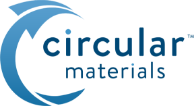Extended Producer Responsibility Leadership
Since 2014, Keurig Dr Pepper (KDP) has committed more than $50 million in support of a more circular economy through collaborative projects, partnerships and investments in communities across North America. Collective action is critical to advance effective and efficient policy solutions that facilitate packaging recovery, such as well-designed Extended Producer Responsibility (EPR) programs. Read on to learn more about why KDP believes well-designed EPR programs can help modernize and standardize recycling in North America.
What is EPR?
EPR is a policy approach that requires companies producing paper and packaging for consumers to fund and manage responsible collection and recycling programs for those
materials. EPR programs shift the costs of recycling from local governments and taxpayers to the companies that produce the packaging with the goal of improving recycling program performance and environmental outcomes.
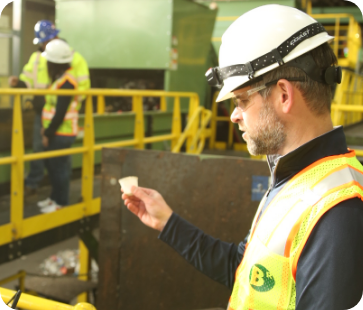
KDP’s position on EPR
KDP supports EPR programs that will generate strong environmental outcomes in an efficient and accountable manner, provide convenient services to consumers and can contribute to a financially and operationally sustainable circular economy.
Across North America, a patchwork of regulations, inadequate investment and lack of minimum performance standards are preventing economies of scale in our recycling system and confusing consumers. That is why we support smart policy solutions, such as well-designed EPR programs, that are focused on efficient and equitable ways to increase material recovery, while reducing the economic and environmental costs of
disposal.
KDP plays a leading role in supporting the modernization and standardization of recycling processes via EPR programs in
both the U.S. and Canada. We are a founding member of two nonprofit Producer Responsibility Organizations: Circular
Action Alliance in the U.S. and Circular Materials in Canada.
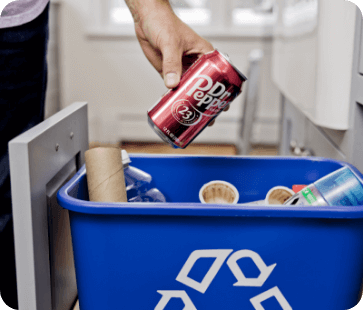
How do we define well-designed EPR?
Thoughtful design of an EPR program is critical to ensure that it is effective, equitable and leads to demonstrable improvements in recycling systems across North America.
Key elements of a well-designed EPR program include:
- Led by a single nonprofit, non-governmental organization, referred to as a Producer Responsibility Organization
- Clear in defining the scope of products affected and fee-setting mechanisms
- Packaging fee paid for by consumer brand companies, like KDP, kept fully separate from general state, local, federal or provincial government funds and invested for improvements to recycling systems
- Able to offer producers access to recovered material to advance the objective of closed loop recycling
- Supportive of environmental justice objectives in improved recycling
systems
Once fully implemented, a well-designed
EPR program should lead to:
- Increased recycling and collection rates
- Improved operational efficiency in recycling systems
- Greater consistency of approach, including definitions, guidelines and accepted material lists, across recycling systems
- Movement towards a more circular economy
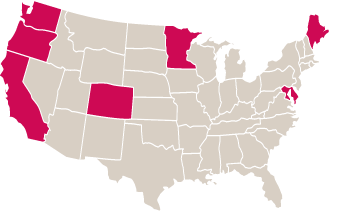
United States of America
EPR programs have been adopted in seven* states across the country, including California, Colorado, Maine, Maryland, Minnesota, Oregon and Washington, which accounts for approximately 22% of the U.S. population.
KDP helped launch the country’s first Producer Responsibility Organization, Circular Action Alliance. Circular Action Alliance is the only organization approved to implement U.S. EPR programs for paper and packaging and is operating as the sole Producer Responsibility Organization in California, Colorado, Maryland, Minnesota and Oregon.
As additional EPR programs are considered, KDP is actively advocating for their adoption through the EPR Leadership Forum, a group of market-leading consumer packaged goods manufacturers and retailers that support well-designed EPR programs.
For additional information on EPR in the U.S., visit Circular Action Alliance’s website.
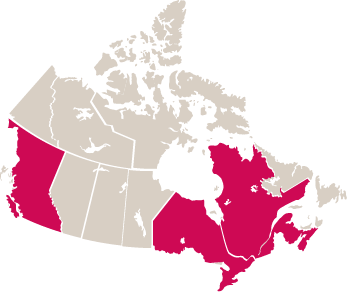
Canada
KDP has been supporting the expansion of EPR programs in Canada for several years, collaborating with major Producer Responsibility Organizations like Éco Entreprises Québec, Recycle BC and Circular Materials, of which KDP Canada is a founding member.
KDP Canada’s commitment to EPR implementation has delivered progress for the acceptance and recycling of KDP packaging. With EPR program expansion across the country, our active participation has led to province-wide K-Cup pod acceptance in British Columbia (2016), Quebec (2025) and Ontario (2026), resulting in K-Cup pod acceptance coverage for 75% of the Canadian population as of January 2026.
For additional information on EPR in Canada, visit Circular Materials ’ website.
*As of June 1, 2025

